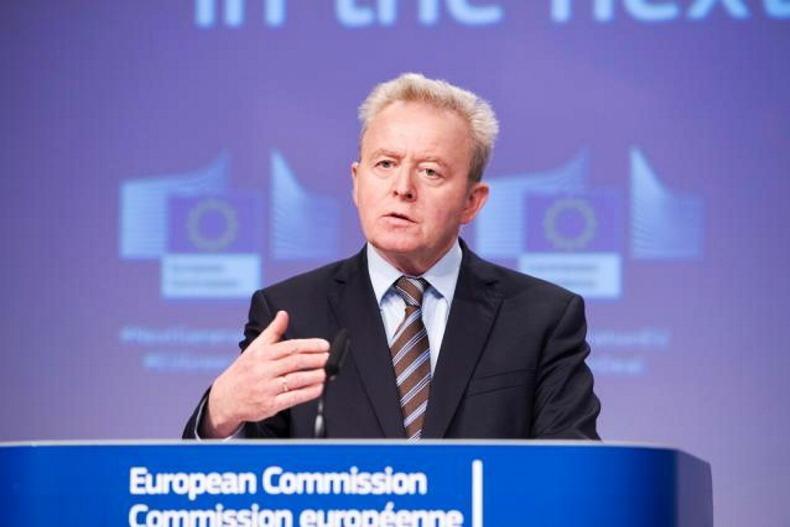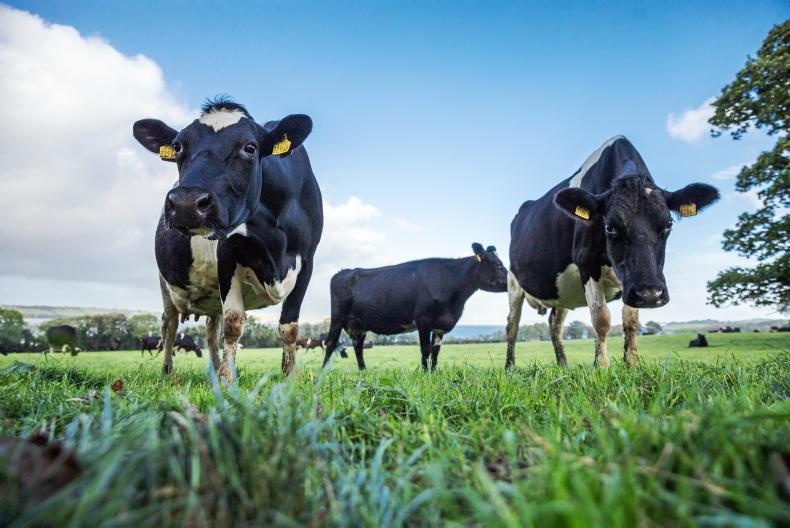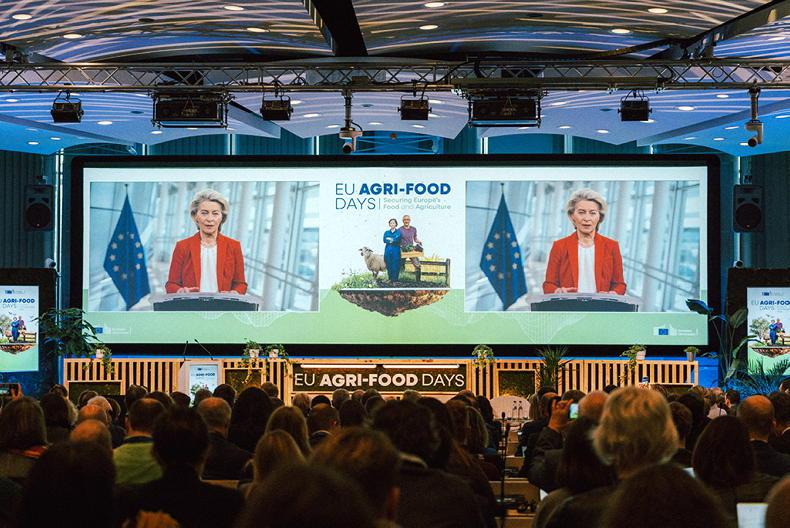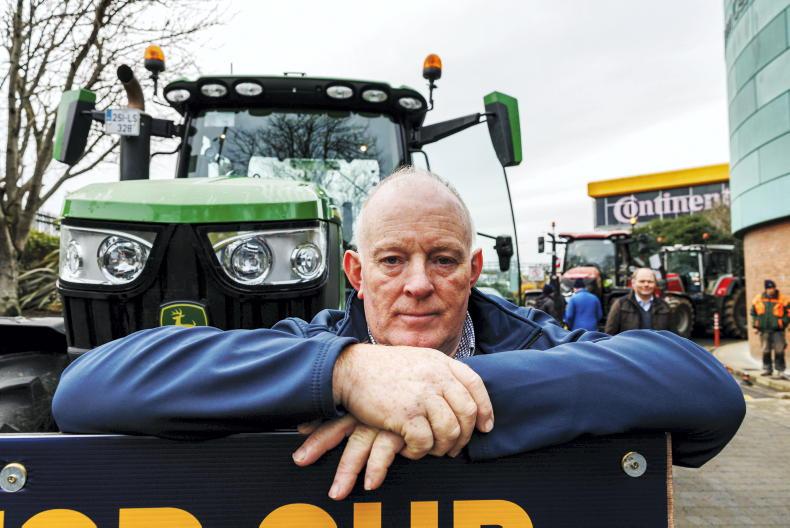Before our eyes… a world tragedy is being played out, which is nothing less than the tragedy of freedom.
There is a threat to the very essence of what Europe has created, a civilisation which is based upon the freedom and dignity of the human personality… If we look around us – and we do not need to look far, alas – we realise that the agricultural community is the first victim.”
These words were spoken over 60 years ago by Professor Walter Hallstein, the first president of the European Commission, at a meeting to establish the Common Agricultural Policy (CAP).
Hallstein’s remarks were made in the context of the Cold War. Unfortunately, they could equally apply today.
In the first weeks of the Russian invasion, Roman Leshchenko, then serving as Ukraine’s Minister for Agriculture, described how Ukrainian farmers were “fighting at day, and working to provide food at night”. Later, Deputy Minister Taras Dzoba told me how Russia was taking Ukrainian soil and using it “as a weapon” of hunger.
I know that this weapon has been used against the people of Ireland in the past; it has been used against my own people too.
The goals of the CAP 60 years ago were to ensure that hunger remained in our history.
The original goals of the CAP are fastened into the founding treaties of the European Union: to improve productivity and stabilise markets; to ensure the availability of food for citizens at reasonable prices; and to provide a fair standard of living for farmers.
These goals have remained the same over the past 60 years. However, our approach to achieving them has changed. Such changes are natural; a policy that does not change with time will be eroded by it.
The current reform marks the sixth major change of the CAP. In this reform, member states have been given the flexibility to address the specific requirements and realities of their farming sectors through national strategic plans.
The Commission is looking for plans that support fairer and more stable farming incomes, help to improve competitiveness, and enable farmers to undertake the necessary changes to make their businesses more resilient and sustainable.
Need for sustainability
I know that many farmers look at the word “sustainable” and see only a new political doctrine, being pressed down on them by distant policy makers.
However, while sustainability is a relatively new term, it is not a new idea. In a sense, it is an idea that has been buried in the internal logic of the CAP since its inception, a problem that the CAP has always been trying to solve – how to achieve sustainable food security.

European Commissioner for Agriculture Janusz Wojciechowski.
In the current reform, we have set out to solve the problem holistically, combining social, environmental and economic approaches.
The success of national CAP plans will not only be measured in environmental indicators.
They will be measured in the number of family farms kept in business, the number of young people who enter into farming and in the volume of safe, nutritious food produced for society.
Targets that correspond with these and other goals must be built into each national plan, to be achieved with policy tools such as eco schemes in Pillar I (mostly for shorter-term management practices) and agri-environmental schemes in Pillar II (for longer-term commitments).
These tools must be used in a way that combine environmental action with social and economic viability.
Fairness in supply chains
To achieve real changes in our food system, we cannot only look to farming actions and CAP funding. We must develop supply chains that are fairer and more rewarding for farmers, advance agricultural research and innovation, and boost consumer awareness and market demand for sustainably produced food.
Fundamentally, as a society, we must re-appraise how we value our food, the land from which it is produced, and those who work to produce it.
Farmers, with the support of the CAP, have demonstrated their value, time and time again, by feeding Europe throughout the last 60 years. This value was underlined during the COVID-19 crisis and is now being reinforced during the ongoing crisis in Ukraine.
CAP establishment
It was this value that Professor Hallstein referred to over 60 years ago, when he justified the establishment of the CAP: “We know what the agricultural community means to Europe, not only from an economic point of view, but morally, socially and in human terms… as modern society develops it is essential that the farmer and his family, with their independence and their human values, should be enabled to survive.”
It was in this spirit that the CAP was established; and it is in this spirit that the CAP will continue.
Before our eyes… a world tragedy is being played out, which is nothing less than the tragedy of freedom.
There is a threat to the very essence of what Europe has created, a civilisation which is based upon the freedom and dignity of the human personality… If we look around us – and we do not need to look far, alas – we realise that the agricultural community is the first victim.”
These words were spoken over 60 years ago by Professor Walter Hallstein, the first president of the European Commission, at a meeting to establish the Common Agricultural Policy (CAP).
Hallstein’s remarks were made in the context of the Cold War. Unfortunately, they could equally apply today.
In the first weeks of the Russian invasion, Roman Leshchenko, then serving as Ukraine’s Minister for Agriculture, described how Ukrainian farmers were “fighting at day, and working to provide food at night”. Later, Deputy Minister Taras Dzoba told me how Russia was taking Ukrainian soil and using it “as a weapon” of hunger.
I know that this weapon has been used against the people of Ireland in the past; it has been used against my own people too.
The goals of the CAP 60 years ago were to ensure that hunger remained in our history.
The original goals of the CAP are fastened into the founding treaties of the European Union: to improve productivity and stabilise markets; to ensure the availability of food for citizens at reasonable prices; and to provide a fair standard of living for farmers.
These goals have remained the same over the past 60 years. However, our approach to achieving them has changed. Such changes are natural; a policy that does not change with time will be eroded by it.
The current reform marks the sixth major change of the CAP. In this reform, member states have been given the flexibility to address the specific requirements and realities of their farming sectors through national strategic plans.
The Commission is looking for plans that support fairer and more stable farming incomes, help to improve competitiveness, and enable farmers to undertake the necessary changes to make their businesses more resilient and sustainable.
Need for sustainability
I know that many farmers look at the word “sustainable” and see only a new political doctrine, being pressed down on them by distant policy makers.
However, while sustainability is a relatively new term, it is not a new idea. In a sense, it is an idea that has been buried in the internal logic of the CAP since its inception, a problem that the CAP has always been trying to solve – how to achieve sustainable food security.

European Commissioner for Agriculture Janusz Wojciechowski.
In the current reform, we have set out to solve the problem holistically, combining social, environmental and economic approaches.
The success of national CAP plans will not only be measured in environmental indicators.
They will be measured in the number of family farms kept in business, the number of young people who enter into farming and in the volume of safe, nutritious food produced for society.
Targets that correspond with these and other goals must be built into each national plan, to be achieved with policy tools such as eco schemes in Pillar I (mostly for shorter-term management practices) and agri-environmental schemes in Pillar II (for longer-term commitments).
These tools must be used in a way that combine environmental action with social and economic viability.
Fairness in supply chains
To achieve real changes in our food system, we cannot only look to farming actions and CAP funding. We must develop supply chains that are fairer and more rewarding for farmers, advance agricultural research and innovation, and boost consumer awareness and market demand for sustainably produced food.
Fundamentally, as a society, we must re-appraise how we value our food, the land from which it is produced, and those who work to produce it.
Farmers, with the support of the CAP, have demonstrated their value, time and time again, by feeding Europe throughout the last 60 years. This value was underlined during the COVID-19 crisis and is now being reinforced during the ongoing crisis in Ukraine.
CAP establishment
It was this value that Professor Hallstein referred to over 60 years ago, when he justified the establishment of the CAP: “We know what the agricultural community means to Europe, not only from an economic point of view, but morally, socially and in human terms… as modern society develops it is essential that the farmer and his family, with their independence and their human values, should be enabled to survive.”
It was in this spirit that the CAP was established; and it is in this spirit that the CAP will continue.










SHARING OPTIONS